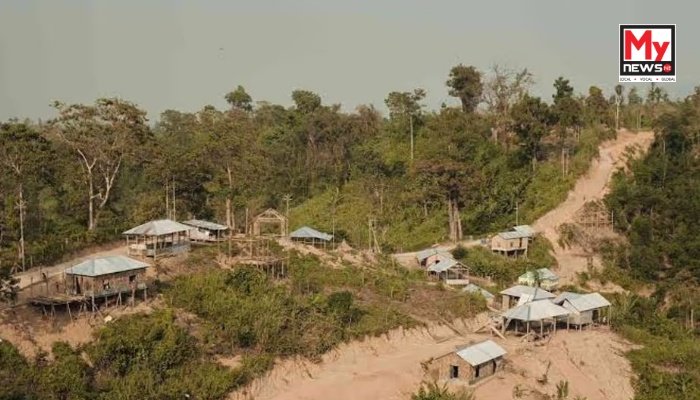Bru Leaders Appeal to Amit Shah Amid Growing Discontent and Hunger Strike
Agartala: Six prominent leaders of the resettled Bru community in Tripura have formally appealed to Union Home Minister Amit Shah, pressing for urgent intervention on long-standing issues concerning food security, land rights, and welfare schemes. This plea arrives as a community member, Zothanga Bru, continues an indefinite hunger strike, amplifying the frustration over unfulfilled rehabilitation promises.
The letter, channelled through the Sub-Divisional Magistrate of Kanchanpur, North Tripura, bears the signatures of A. Sawibunga, Bruno Msha, Philip Apeto, Vipin Kumar Reang, and T. Lal Dingliana Bru. These individuals were also signatories of the landmark 2020 Quadripartite Bru Agreement, signifying a united front representing thousands of Bru families now residing across 13 resettlement sites in Tripura.
The communication underscores the community’s belief that the Home Minister’s “proactive intervention can pave the way for justice and improved living conditions,” asserting that addressing these grievances is crucial to upholding the government’s commitment to “justice and equality.”
Among their key demands, the Bru leaders are seeking the complete rollout of the Antyodaya Anna Yojana (AAY) for all resettled families, alongside an additional 5 kg of foodgrain per person monthly to address nutritional deficiencies. They have also called for the allocation of agricultural land and the official transfer of 30×40 sq. ft. housing plots with registered documents, aiming to provide legal ownership and residential stability.
Furthermore, the letter advocates for the initiation of dedicated development initiatives across all 13 resettlement locations to foster economic growth and improve infrastructure. It also urges the extension of benefits from centrally sponsored schemes designed for Particularly Vulnerable Tribal Groups (PVTGs) to the community.
While 6,935 Bru families have been permanently resettled, the leaders highlighted the plight of approximately 320 families, including splinter groups and those left out in camps like Naisingpara and Ashapara, who despite possessing valid documentation, are still deprived of fundamental services.
The letter poignantly describes the situation of these families as “distressing and uncertain,” citing a dire lack of food, educational opportunities, and financial assistance, leading them to “lose hope for a better future.”
Access to healthcare and education infrastructure also remains a significant concern. The leaders have implored the Centre to provide institutional support to ensure these essential services are available in all resettlement areas.
The roots of the Bru displacement crisis trace back to October 1997, when ethnic violence in western Mizoram compelled thousands of Bru (Reang) families to seek refuge in North Tripura. Subsequently, over 5,000 families were accommodated in relief camps within the Kanchanpur sub-division.
A repatriation agreement was initially inked in July 2018, involving the Centre, Tripura, Mizoram, and the Mizoram Bru Displaced People’s Forum (MBDPF), covering 5,407 families (over 32,000 individuals). This was followed by the pivotal Quadripartite Agreement in January 2020, which facilitated the permanent settlement of displaced Bru families within Tripura.
However, five years post the initial repatriation endeavours, community leaders contend that a substantial portion of the promised rehabilitation support has yet to materialise.
The letter concludes with a “humble request” for the Home Minister’s office to prioritise their demands, expressing hope for a “timely response and decisive action” that would demonstrate the government’s unwavering commitment to “justice, dignity, and the rights of every citizen.”
Read More: Justice M.S. Ramachandra Rao Takes Oath as Tripura High Court Chief Justice

